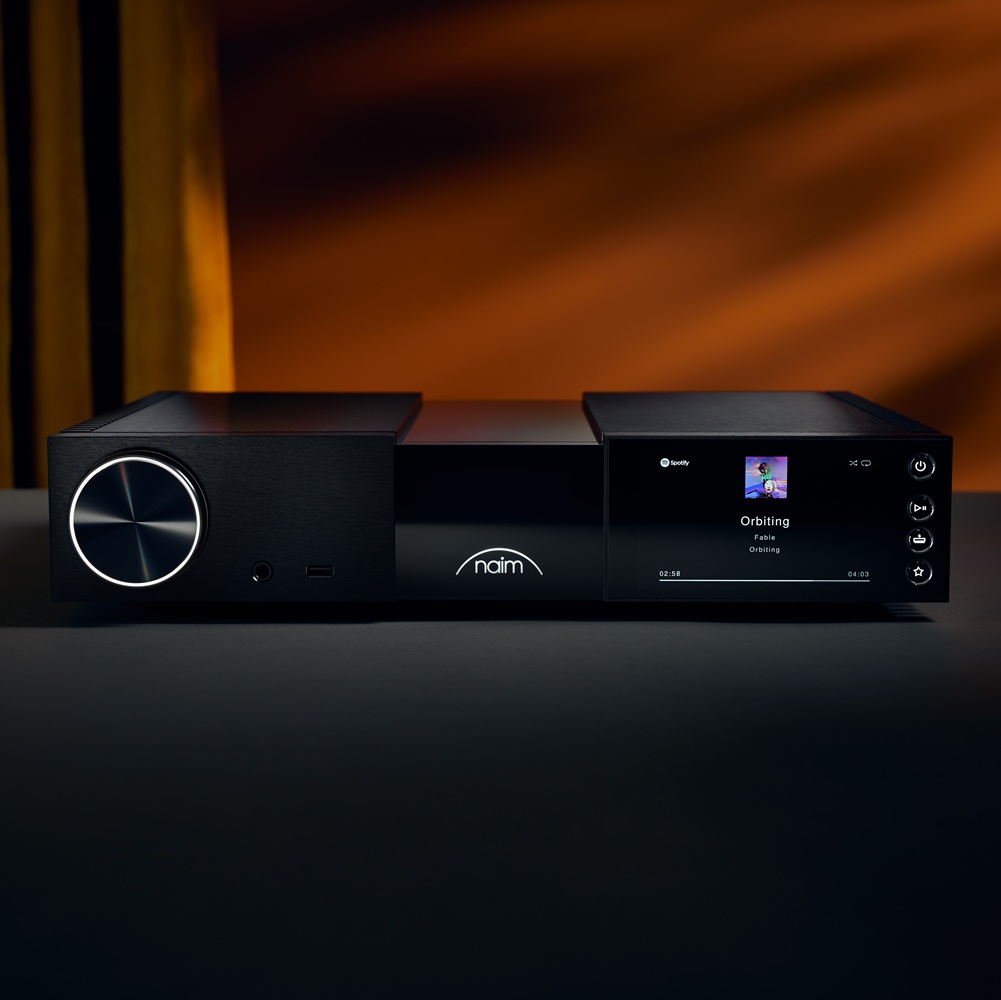Naim’s amplifier range—including integrated amplifiers (NAIT), preamplifiers (NAC), and power amplifiers (NAP)—is designed to deliver musical performance with precision and flexibility. Whether you're building a compact system or a reference-level setup, understanding compatibility across these components is essential.
This guide outlines the key compatibility features of each amplifier type, helping you create a perfectly matched Naim system.
1. Integrated Amplifiers (NAIT Series)
NAIT XS 3 and SUPERNAIT 3
These integrated amplifiers combine preamp and power amp stages in a single chassis, offering simplicity and high performance.
Feature | NAIT XS 3 | SUPERNAIT 3 |
Power Output | 2 × 70W @ 8Ω | 2 × 80W @ 8Ω |
Phono Stage | MM (Moving Magnet) | MM (Moving Magnet) |
Headphone Output | Yes (6.3mm jack) | Yes (6.3mm jack) |
External PSU Upgrade | FlatCap XS, HiCap-DR | HiCap-DR |
Preamp Output | Yes | Yes |
AV Bypass | Yes | Yes |
Tip: These models are ideal for users seeking a streamlined setup with upgrade potential via external power supplies, such as the HiCap-DR.
2. Preamplifiers (NAC Series)
Naim’s NAC preamps are designed to be paired with NAP power amplifiers and external power supplies for optimal performance. Note that it’s possible to use any NAP with any NAC (providing appropriate power supplies and interconnects are utilised), but it’s critical to create a balanced match.
Model | PSU Compatibility | Recommended Power Amplifier | Phono Stage | Remote Control |
NAC 202 | HiCap-DR, FlatCap XS, NAPSC-2 | NAP 200-DR, NAP 250-DR | No | Yes (NARCOM 5) |
NAC 282 | HiCap-DR, SuperCap-DR | NAP 200-DR, NAP 250-DR, NAP 250 (New Classic) | No | Yes (NARCOM 5) |
NSC 222 | NPX 300, NAPS 555-DR, XPS-DR | NAP 250 (New Classic) | Yes (MM) | Yes (NSS 333/NSC 222 RF remote) |
NAC 252 | SuperCap | NAP 250-DR, NAP 250 (New Classic), NAP 300-DR, NAP 350 mono blocks | No | Yes (NARCOM 5) |
Note: All NAC models require an external power supply to operate. The NAC 552 includes its dedicated PSU for reference-level performance.
3. Power Amplifiers (NAP Series)
Naim’s NAP power amplifiers are designed to work with NAC preamps and offer scalable performance across the range.
Model | Power Output (8Ω) | PSU Required |
NAP 200-DR | 2 × 70W | Internal |
NAP 250-DR | 2 × 80W | Internal |
NAP 300-DR | 2 × 90W | External PSU |
NAP 250 (New Classic) | 2 × 100W | Internal |
NAP 350 (mono block) | 1× 175W | Internal (one per mono block) |
NAP 500-DR | 2 × 140W | 500 PS DR |
Tip: The NAP 300 DR and NAP 500 DR require dedicated external power supplies and offer exceptional dynamics and control for demanding loudspeakers.
Tip: While on paper the NAP 350 has a higher power output, due to the design and quality of the NAP 500-DR’s power supply, it will always outperform a pair of NAP 350s, both in terms of sound quality and its ability to handle challenging loudspeaker loads.
4. System Automation and Control
All integrated and preamplifiers support System Automation when paired with a compatible Naim streaming sources. This allows:
- Volume control via Focal & Naim App
- Input switching
The New Classic 200 and 300 series all boast increased System Automation capabilities. Mini-toslink cables are supplied where applicable with New Classic products, enabling standby/power up and LED brightness synchronisation.
5. Speaker and Source Compatibility
All amplifiers are compatible with a wide range of passive loudspeakers and analogue sources. For best results:
- Use Naim speaker cables with correct termination.
- Match amplifier power output to speaker sensitivity and impedance.
- Use DIN or XLR connections where possible for optimal signal integrity (note that the New Classic 200 and 300 series make use of balanced XLR connections, whereas the NAP 250-DR, NAP 300-DR and NAP 500-DR use Naim-specific, unbalanced XLR connections and interconnects).
Conclusion
From the streamlined NAIT XS 3 to the reference-level NAC 552/NAP 500 DR combination, Naim’s amplifier ecosystem offers unmatched flexibility and performance. With clear upgrade paths and broad compatibility, you can build a system that evolves with your listening needs.



